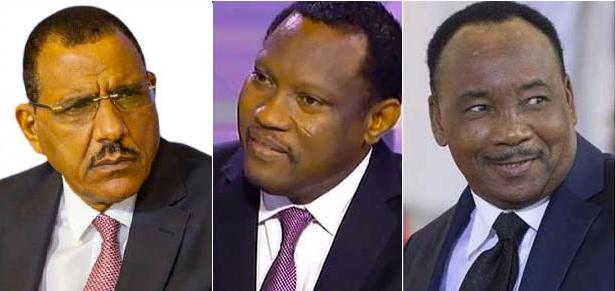Sahara: armies commit atrocities against their own civilian populations
Published on Wednesday 20 May 2020 Back to articles
The latest issue of Sahara Focus is dominated by credible reports that the regional national armies — notably those of Mali, Niger and Burkina Faso — have been escalating a campaign of terrorising the Sahel’s civilian population. Officially it is designed to root out Islamist terrorism amongst mainly Fulani pastoralists but it has involved: civilians being massacred, extrajudicial killings, cattle being killed or stolen, and villages being burnt to the ground
These atrocities could have profound implications but this will largely depend, however, on whether international organisations — such as the UN, African Union (AU), EU, and especially key Western countries — decide to act or engage in a cover-up.
While the UN will probably press for some action, the AU is unlikely to become engaged, whilst the EU and most major Western powers are more likely to try and sweep it under the carpet.
The G5S countries themselves could take corrective action, but this is unlikely because their political leaderships — with the possible exception of Mauritania which is not directly involved — are already too politically corrupt and deeply into denial.
If, however, major international NGOs, along with the mainstream Western media, were to take up the issue, the implications could be profound. Amongst the more extreme consequences could be the withdrawal of both Western troops and international funding from these countries, or the imposition of far more stringent conditionalities and oversight than is presently the case.
Much, however, will depend on how both France and the EU respond. Paris is currently in the difficult position of having imposed a single military command structure in the Sahel, which obliges it to take much more responsibility for the actions of the region’s armies. The EU — a major international funder of the Sahel countries — takes its lead from France on such regional matters and has a long history of covering-up or turning a blind eye to the region’s shortcomings and paying little more than lip service to human rights.
The atrocities being committed by these national armies is wholly counter-productive because it will merely drive local populations further into the arms of the jihadists and thereby both intensify and prolong the region’s crisis.
Evidence from across the region suggests that the national authorities are unable to cope with the COVID-19 pandemic, which, after a slow start, appears to be gathering pace in the Sahel. This is likely to lead to increased resistance to the governments’ containment measures, as is already being seen, and some serious sectoral and regional economic damage. Meanwhile the apparent failure of both the Niger and Mali authorities to face up to high-level financial corruption in government circles will further damage the credibility of their legal and political institutions, and is likely to act as a catalyst for social unrest. In Mali, this situation has been compounded by the latest condoning of electoral fraud. The implication for both countries is more frequent and widespread social unrest and the likely emergence of a more radical and extreme form of politics.
This excerpt is taken from SaharaFocus, our monthly intelligence report on the Sahara region. Click here to receive a free sample copy.



